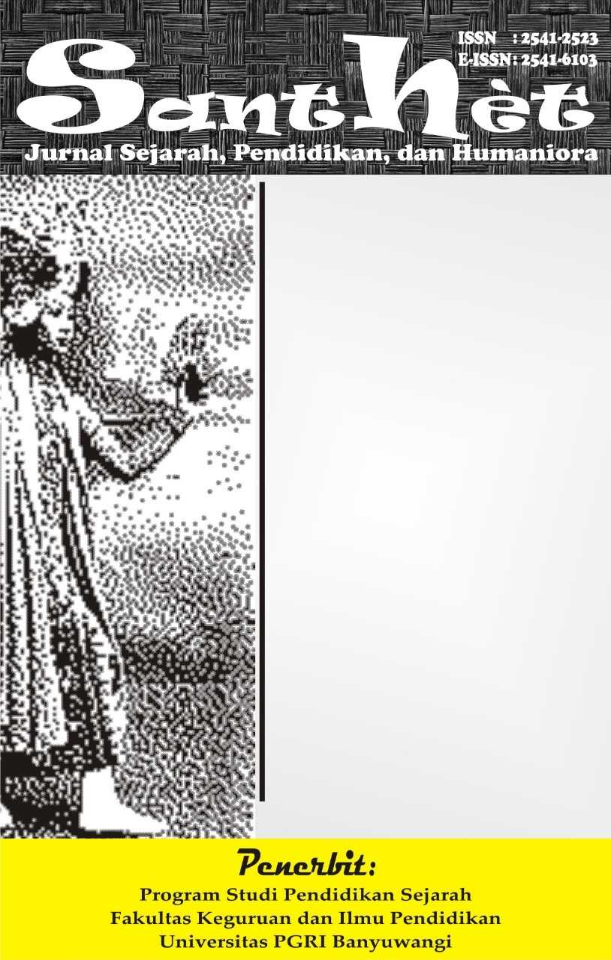THE CONSTRUCTION OF INDONESIAN FAMILY LAW IN THE PERSPECTIVE OF ISLAMIC LAW: A CONCEPTUAL REVIEW AND IMPLEMENTATION
Konstruksi Hukum Keluarga Indonesia dalam Perspektif Hukum Islam: Tinjauan Konseptual dan Implementasi
DOI:
https://doi.org/10.36526/santhet.v7i1.4594Keywords:
Islamic Family Law; Compilation of Islamic Law; Gender Equality; Legal PluralismAbstract
This article examines the construction of family law in Indonesia from an Islamic legal perspective, focusing on conceptual review and implementation within the national legal system. As the largest Muslim-majority country, Indonesia integrates Islamic legal principles into family law through regulations such as the Marriage Law No. 1 of 1974 and the Compilation of Islamic Law (KHI), which serve as guidelines for religious courts. This study utilizes a literature review method to analyze various sources discussing Islamic legal principles in marriage, divorce, child custody, and inheritance. The findings indicate that while Islamic family law has successfully adapted within the national legal context, challenges remain, particularly concerning gender equality, child protection, and the need for flexible legal interpretation. The relevance of Islamic law in Indonesian family law requires contextual ijtihad to address contemporary issues without compromising its core values. This study underscores the importance of engaging scholars, academics, and stakeholders in reforming Islamic family law to align with social justice principles within Indonesia's multicultural society.
References
Anshori, A. (2018). "Perkawinan dalam Hukum Islam dan Hak Asasi Manusia." Jurnal Hukum Islam, 16(2), 97-109.
Alfitri. (2015). "Religious Liberty and the Prospects for Religious Harmony: The Impact of the New Order's Islamic Policies on the Legal Position of Syari'ah in Indonesia." Asian Journal of Comparative Law, 10(2), 331-354.
Bowen, J. R. (2003). Islam, Law, and Equality in Indonesia: An Anthropology of Public Reasoning. Cambridge University Press.
Blackburn, S. (2004). Women and the State in Modern Indonesia. Cambridge University Press.
Cammack, M. (2007). "Islamic Law in Southeast Asia." Journal of Islamic Studies, 15(1), 45-62.
Effendi, M. (2015). Sistem Hukum Indonesia: Kajian Hukum Keluarga dalam Perspektif Islam. Bandung: Remaja Rosdakarya.
Mulia, S. M. (2005). Hukum Islam dan Hukum Nasional: Menuju Rekonstruksi Hukum Islam di Indonesia. Yogyakarta: LKiS.
Nurlaelawati, E. (2010). Modernization, Tradition, and Identity: The Kompilasi Hukum Islam and Legal Practice in Indonesian Religious Courts. Leiden: Brill.
Rahardjo, S. (2002). Membangun Hukum di Indonesia. Yogyakarta: Gadjah Mada University Press.
Nurlaelawati, E. (2010). Modernization, Tradition, and Identity: The Kompilasi Hukum Islam and Legal Practice in Indonesian Religious Courts. Leiden: Brill.
Rahardjo, S. (2002). Membangun Hukum di Indonesia. Yogyakarta: Gadjah Mada University Press.
Hooker, M. B. (2008). Indonesian Syariah: Defining a National School of Islamic Law. Institute of Southeast Asian Studies.
Mudzhar, M. A. (1993). Fatwas of the Council of Indonesian Ulama: A Study of Islamic Legal Thought in Indonesia, 1975–1988. Jakarta: INIS.
Salim, A. (2011). Contemporary Islamic Law in Indonesia: Sharia and Legal Pluralism. Edinburgh University Press.





























